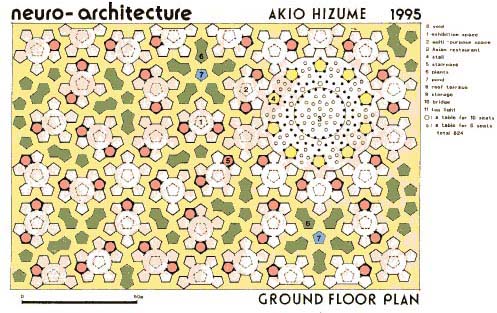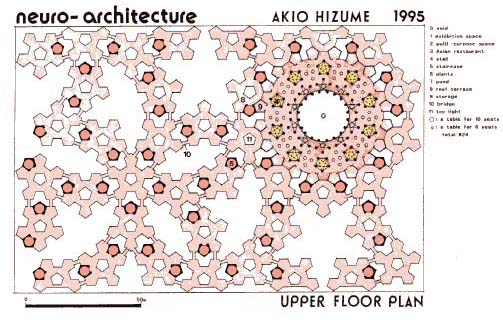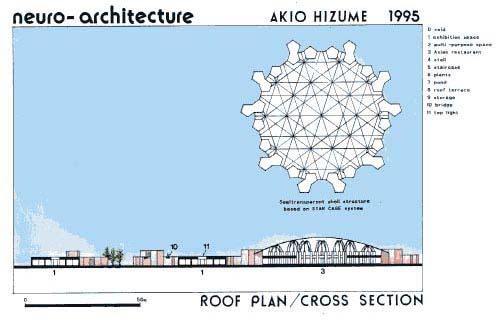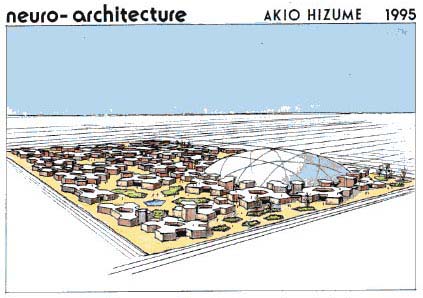

My project, "neuro-architecture", is designed based
on the Penrose Tiling . I would first like to build it as a Maze
Park for children, who would enjoy playing there and who would
also, I think, invent many new games to play because of the spaces
and patterns within the maze.
The maze would elicit much different responses from them than
the usual linear or even circular play spaces they may normally
encounter.
"Neuro-Architecture" is also a design for an experimental
city, to the Maze Park would be a prototype. It is important
that people move through and around such space so they can learn
high dimensional geometry with and within their bodies. There
is an essential power in architecture to educate people and to
create more freedom in and for them.
Many museums are rectilinear, with square rooms, and exhibits
are arranged chronologically. However, in neuro-architecture,
linear paths do not exist; people can access its spaces randomly.
They may, at first,
become confused and perhaps even get lost within neuro-architecture,
but as they become more familiar with it, their minds will become
educated and more advanced. Their behavior will become more like
that of the
human brain.
In a sense, neuro-architecture is a two-dimensional arrangement
of the one-dimensional Democracy Steps built in the Hocking Hills
State Park in Ohio. I feel neuro-architecture has a mathematical
destiny to be built
somewhere on earth.
If I can realize this idea, I will design some additional functions
in the Maze Park. It can be, for example, an outdoor museum.
It can be built of any materials, but if we were to use brick,
we could incorporate ceramic pictures made by children, placing
them on the walls. These ceramic pictures would be the museum
artifacts created by the children, and they would last far longer
than the children's life spans.



This design is a variation of my previous work "GOETHEANUM
3(1990)" .
This article was published on a science magazine HYPER SPACE,
Vol.4, No.2,1995.